How to legally own a gun in Ghana
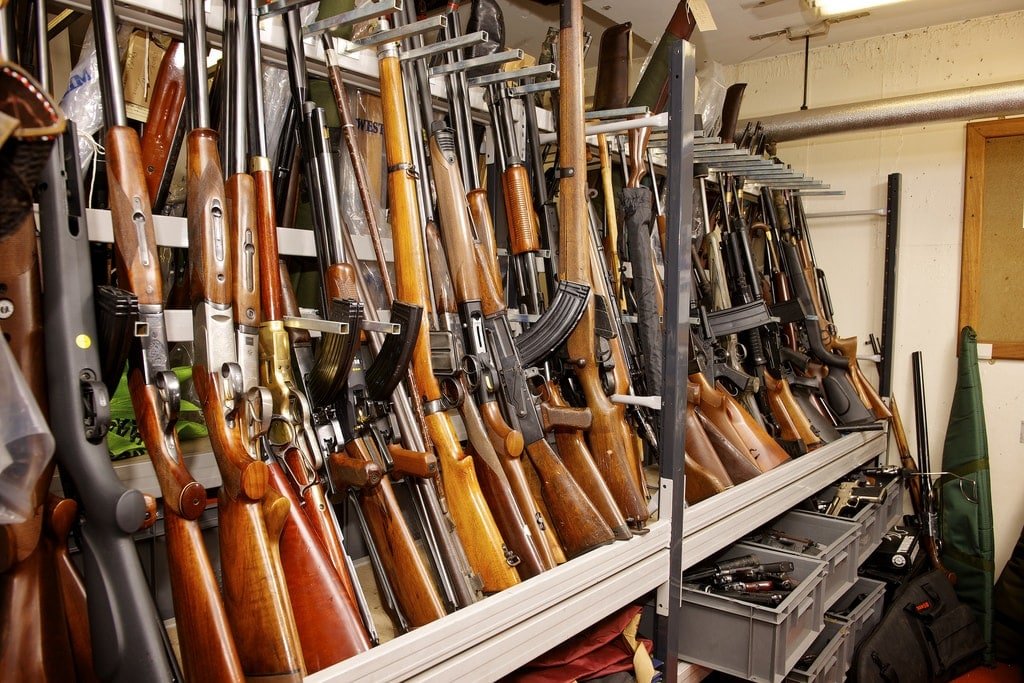
With the rate of crime in Ghana today, many Ghanaians are thinking of owning a gun as an additional layer of protection just in case a criminal attempts to attack them. In this post, we shall walk you through how to legally own a gun in Ghana.
How to legally own a gun in Ghana
The person who intends to own a gun legally in Ghana must be:
18 years and above
Mentally sound, physically fit and must be of good character
Without criminal traits or records
That person, upon meeting the conditions above, shall first go to the nearest Police Station, specifically the Firearm Licensing Office, to apply for a specified firearm and also for forensic and physical background vetting.
The police will then begin the process of documentation including filling of application forms after the applicant has been cleared and has been found not to have any criminal traits, leading to the issuance of a permit to acquire the firearm.
The permit when issued gives the applicant the right to purchase the firearm, only from a licensed arms and ammunition dealer, for licensing by the police. The validity of the permit is six (6) months and not renewable but can be re-applied for. This implies that when a permit is issued, the applicant must purchase/acquire the firearm stated in the permit within six months for licensing, otherwise it becomes invalid and must be surrendered to the office of issue and then re-applied for.
It should be noted that permit to purchase firearm does not replace the prescribed license to bear firearm.
It is illegal to handle any firearm without license. Whilst the permit gives the applicant the authority to purchase the firearm within a period of six months or lose its validity, the license to bear a firearm gives the applicant the right to own and handle a firearm for a period of one year; renewable every year.
The said applicant forfeits the right if he/she does not renew the license after expiration. This makes such firearm an illicit one and its use illegal; a situation that should be avoided.
What it costs to acquire a firearm:
But registering or licensing a firearm comes with a cost to the individual who intends to have one. Below is a list of prices an applicant is expected to pay at every stage of the process:
Application Form – 350.00
Vetting Form – 100.00
Approval Form – 150.00
Additional Quota Form – 300.00
Review Form – 200.00
Renewal of Quota Form – 200.00
Central Firearms Unit – CFU
The Central Firearms Registry [CFR] was created in the year 1955 with the sole responsibility of registering and licensing of firearms within the country. To ensure effective management, the Unit was placed under the direct supervision of the Head of the Criminal Investigation Department (CID) of the Ghana Police Service.
Functions of the Unit
Some major functions are enumerated below
- To keep records of all firearms licensed and registered in the country indicating the type, make, barrel/serial and butt numbers and particulars of gun owners. These are obtained from the Regional, Divisional, District and Station arms and ammunition offices throughout the country. Armed with these particulars, the Central Firearms Registry at the CID-Headquarters in turn prepares index cards on each firearm registered for the first time and amend or update records for those re-licensed or renewed. The essence of providing these information to the head office is to enable the office provide accurate information on guns used in the commission of crimes and those missing or reported stolen.
- To keep records of all licensed arms and ammunition dealers in the country.
- To liaise with the Ministry of the Interior on control of import and export of arms and ammunition including explosives.
- To control and monitor the movement of arms and ammunition including explosives in the country.
- To organize training and periodic orientation courses in firearms licensing duties for selected police personnel.
- To regularly inspect the stock levels of arms and ammunition of private magazines/warehouses of dealers.
- To keep statistics of firearms licensed and registered, revenue collected and stock levels of licensed dealers for the information of the Head of Criminal Investigation Department (CID) and the Minister responsible for the Interior.
READ: Ghana and Nigeria named in projected World’s biggest economies in 2075
TRANSFER OF FIREARMS (CHANGE OF OWNERSHIP)
An individual who possesses license to bear a firearm may decide at any point in his/her life time to transfer the firearm to anyone of his/her choice as a gift or upon death as inheritance.
However, such a transfer should take place at the police station with the beneficiary going through a procedure to satisfy the requirements as stipulated in the law.
IMPORTATION OF FIREARMS/SMALL ARMS
There are licensed arms and ammunition dealers in the country. These dealers submit applications for permit to import firearms and cartridges to the Minister responsible for the
Interior for his approval or otherwise. It must be stated clearly that they are the only ones who are permitted to sell firearms, excluding arms of precision, to the general public upon
presentation of a police permit. Also, the law permits the Minister of the Interior to grant permit to individuals upon receipt of an application to import arms of precision such as pistols and revolvers [which the dealers are not allowed to import for sale] into the country.
GHANAIANS LIVING ABROAD
Ghanaians living outside the country would have to apply to the Honourable Minister of the Interior in Ghana for permission to bring in a firearm. It is illegal for anybody to bring in a firearm without taking permission from the Honourable Minister. Any other process or source of acquisition apart from the abovementioned is against the law, and offenders when caught will have to face the full rigors of the law.
AQCUIRING LOCALLY-MADE FIREARMS
Arms and Ammunition Act 118 of 1962 prohibited the local manufacture of arms and ammunition, whilst NRCD 9 0f 1972 which amended certain portions of Act 118 of 1962 stated
among other things that no person shall, except with the written consent of the National
Redemption Council and subject to such conditions and restrictions as the council may determine, manufacture any arms and ammunition including explosives. Irrespective of this
amendment, nobody as at now has applied to that effect.
The law however gives blacksmiths the license to repair imported firearms. As a result, some blacksmiths take advantage of the situation to illegally manufacture same making them easily accessible. Though the NRCD 9, 1972 does not completely prohibit anyone from manufacturing, once they are manufacturing without approval from the appropriate authorities, it becomes illegal.
The implication of this is that anyone who acquires such firearm falls foul of the laws of the land and would have himself/herself to blame when the long arms of the law catch up with him/her.
Statistics
Four thousand, Four Hundred and Ninety-Four (4,494) guns were licensed and registered in the 2012. Also, Four Hundred and Seventy-Four Thousand, Eight Hundred and Seventy Ghana Cedis (GH¢474,870.00) were collected as revenue countrywide in the same year.
We hope this information on “How to legally own a gun in Ghana” will go a long way to ensure that, those who desire to own guns in Ghana go through the right processes.
Source: Ghana Police Service
Send Stories | Social Media | Disclaimer
Send Stories and Articles for publication to [email protected]
We Are Active On Social Media
WhatsApp Channel: JOIN HERE
2024 BECE and WASSCE Channel - JOIN HERE
Facebook: JOIN HERE
Telegram: JOIN HERE
Twitter: FOLLOW US HERE
Instagram: FOLLOW US HERE
Disclaimer:
The information contained in this post on Ghana Education News is for general information purposes only. While we endeavour to keep the information up to date and correct, we make no representations or warranties of any kind, express or implied, about the completeness, accuracy, reliability, suitability or availability with respect to the website or the information, products, services, or related graphics contained on the post for any purpose.
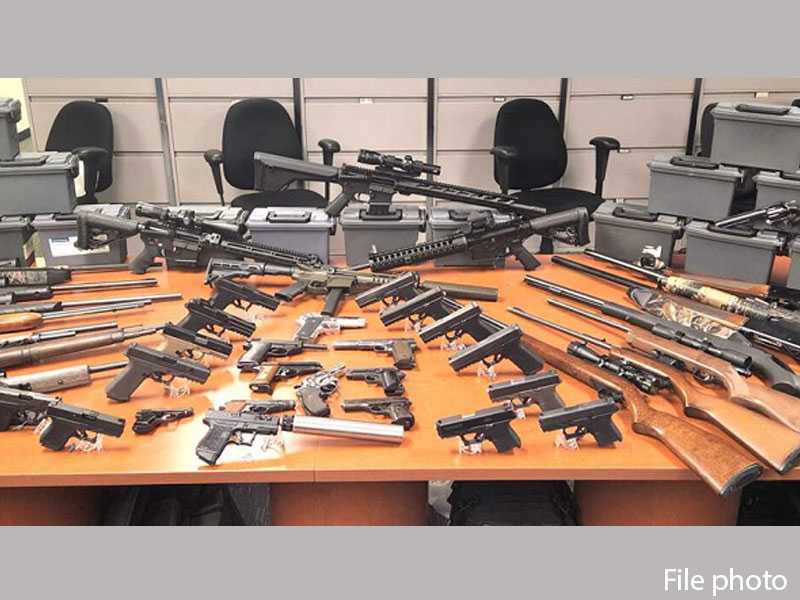



 How to Get Started with WhatsApp Marketing
How to Get Started with WhatsApp Marketing 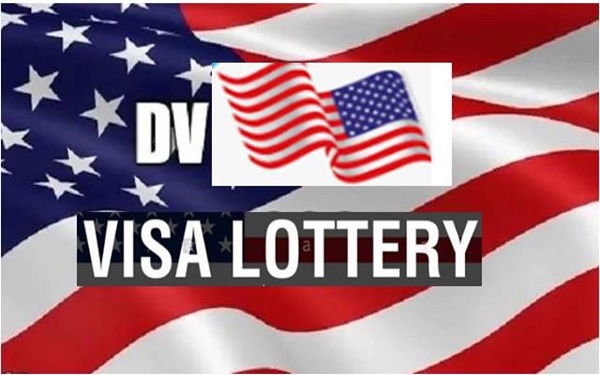 How to Check Your DV Lottery Status
How to Check Your DV Lottery Status  How to Create a Vision Board to Manifest Your Dreams
How to Create a Vision Board to Manifest Your Dreams 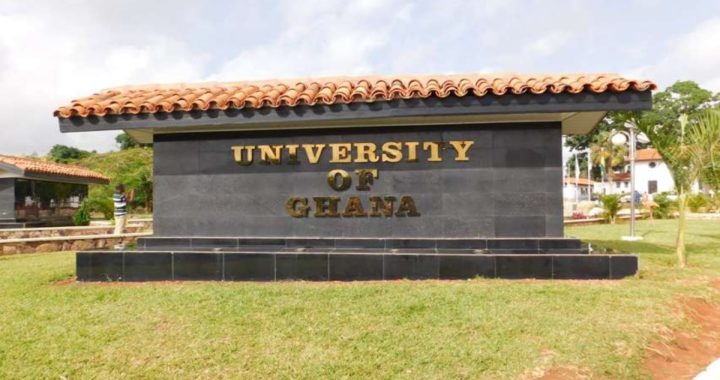 How to buy UG Admission Voucher with Momo/Shortcode
How to buy UG Admission Voucher with Momo/Shortcode 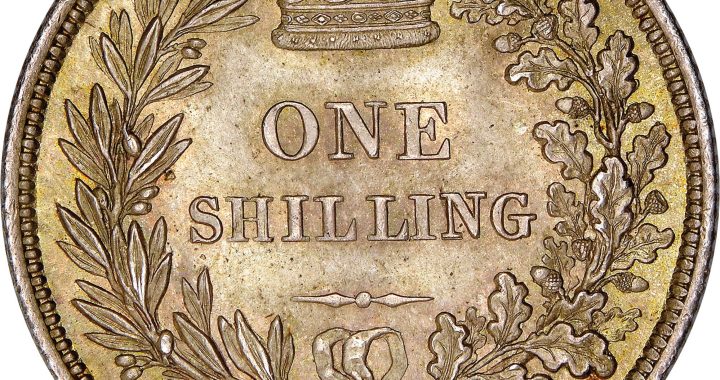 The Poll Tax Ordinance of 1852
The Poll Tax Ordinance of 1852 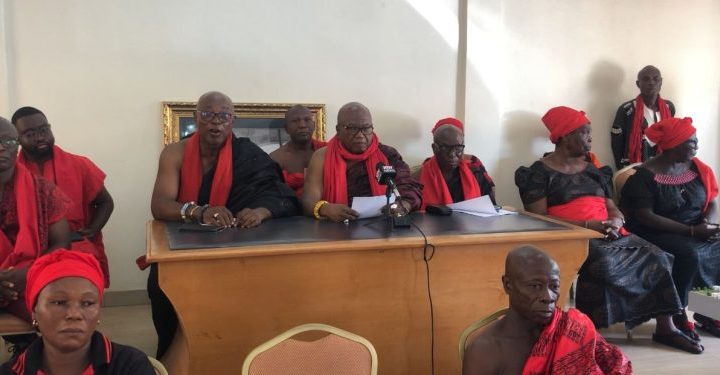 Asogli State rejects renaming Ho Technical University after Ephriam Amu
Asogli State rejects renaming Ho Technical University after Ephriam Amu 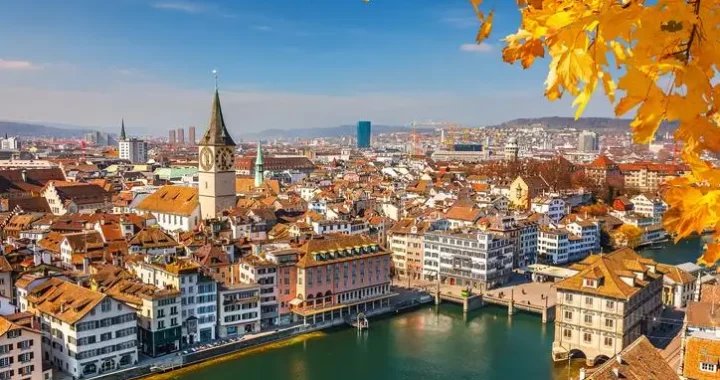 Top 5 Universities in the Netherlands for Masters Studies
Top 5 Universities in the Netherlands for Masters Studies